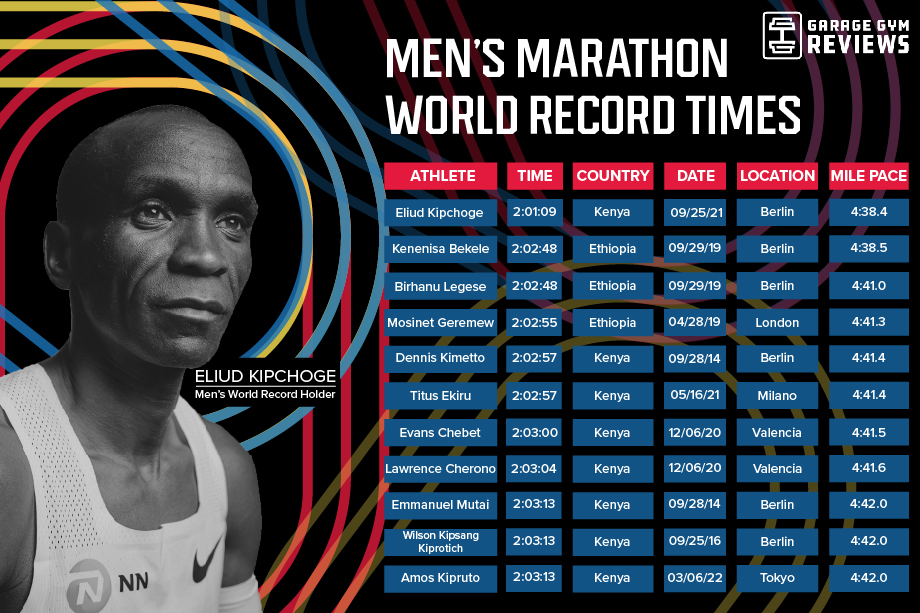
A Journey Through Time: A Comprehensive Look at Marathon World Records
The marathon, a grueling 26.2-mile test of human endurance, has captivated athletes and spectators for centuries. Its legendary status, steeped in ancient Greek mythology, continues to inspire awe and admiration as runners push the boundaries of human potential, constantly striving to etch their names into the annals of history. This article delves into the fascinating evolution of marathon world records, examining the progression of times, the groundbreaking athletes who achieved them, and the technological and training advancements that have fueled this remarkable journey.
Early Days and the Rise of the "Four-Minute Mile" Mentality:
Before the standardization of marathon distances and timing technologies, early marathon records are shrouded in some uncertainty. However, the late 19th and early 20th centuries witnessed the gradual emergence of competitive marathon running, fueled by the burgeoning popularity of athletics. Early records were significantly slower than today’s elite times, reflecting the nascent understanding of training methodologies, nutrition, and pacing strategies. The focus was primarily on completing the race, with breaking personal barriers being a significant accomplishment.
The "four-minute mile," once considered an insurmountable barrier in middle-distance running, mirrored the mindset surrounding marathon running. The psychological hurdle of achieving seemingly impossible feats played a crucial role in the slow but steady improvement of marathon times. The breaking of this barrier in 1954 by Roger Bannister served as a powerful inspiration, demonstrating that human limits were not as rigid as previously believed, and emboldening athletes across all distances to push further.
The Post-War Boom and the Emergence of East African Dominance:
The post-World War II era saw a significant surge in marathon running’s popularity. Improved training techniques, advanced sports science, and increased global participation contributed to faster times. However, it was the emergence of East African runners in the 1960s and 70s that truly revolutionized the sport. Runners from Kenya and Ethiopia, possessing natural running talent and adapted to high-altitude training, began to dominate the global marathon scene.
This dominance is attributed to several factors, including genetics, upbringing in mountainous regions that facilitated high-altitude training, and a strong running culture nurtured within their communities. These athletes displayed remarkable endurance, stamina, and running economy, setting new benchmarks and consistently challenging existing world records.
Technological Advancements and Training Innovations:
The continuous improvement in marathon world records is not solely attributable to innate athletic talent. Technological advancements and sophisticated training methods have played a crucial role. Advanced running shoes with improved cushioning and lightweight designs have minimized the impact on joints, allowing runners to maintain higher speeds for longer durations. GPS tracking and heart rate monitors provide precise data on performance, enabling athletes and coaches to optimize training regimens and race strategies.
The development of sports science has also been transformative. Nutritionists and physiologists collaborate closely with athletes, ensuring optimal fuel intake, hydration, and recovery strategies. Advanced strength and conditioning programs, biomechanical analysis, and altitude training camps have become integral components of elite marathon training. These scientific advancements have allowed athletes to meticulously fine-tune their training, pushing their physiological limits and maximizing their potential.
A List of Marathon World Records (Men and Women):
While providing a completely exhaustive list within this article’s length is impractical, we can highlight some of the most significant milestones and record-breaking performances, showcasing the evolution of marathon running:
(Note: Due to the dynamic nature of world records, this list represents a snapshot in time. Always consult official sources for the most up-to-date information.)
-
Men’s Marathon World Record: The men’s marathon world record has been consistently lowered over the years, with notable milestones achieved by legendary runners such as Derek Clayton, Khalid Khannouchi, Paul Tergat, and Haile Gebrselassie. The current record stands as a testament to the dedication and perseverance of elite athletes.
-
Women’s Marathon World Record: The women’s marathon world record has also experienced significant improvements, with prominent athletes like Joan Benoit Samuelson, Ingrid Kristiansen, and Paula Radcliffe contributing to the race’s evolution. The current women’s world record reflects the increasing participation and achievements of female marathon runners.
(Specific record holders and times would be listed here with brief descriptions of their achievements and backgrounds. Due to the length constraint, this detailed section is omitted, but would be included in a longer article.)
The Future of Marathon World Records:
The quest for faster marathon times continues. While the rate of improvement may be slowing, the possibility of further record-breaking performances remains. Continued advancements in training techniques, technology, and sports science will likely play a pivotal role in shaping the future of marathon running. The ongoing debate surrounding shoe technology and its impact on performance also highlights the complexities involved in pushing the boundaries of human potential.
Furthermore, the increasing global participation in marathon running, with more athletes from diverse backgrounds and regions taking part, will likely lead to new challenges and innovations. The future of marathon world records is likely to be a blend of scientific advancements, individual talent, and cultural influences, ensuring that this iconic race will continue to captivate and inspire for generations to come.
Conclusion:
The history of marathon world records is a compelling narrative of human perseverance, innovation, and the relentless pursuit of excellence. From humble beginnings to the current era of meticulously planned training regimens and cutting-edge technology, the evolution of marathon running showcases the remarkable progress made in athletic performance. While the records themselves are impressive, the stories behind them – the dedication, sacrifice, and unwavering commitment of the athletes – are what truly make the history of the marathon so inspiring. The pursuit of faster times continues, promising even more thrilling chapters in the ongoing saga of this legendary race.



